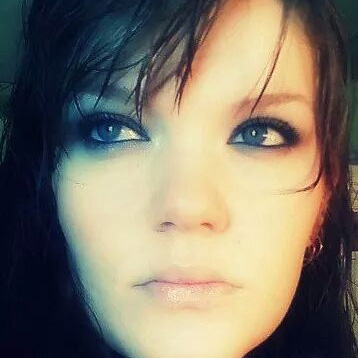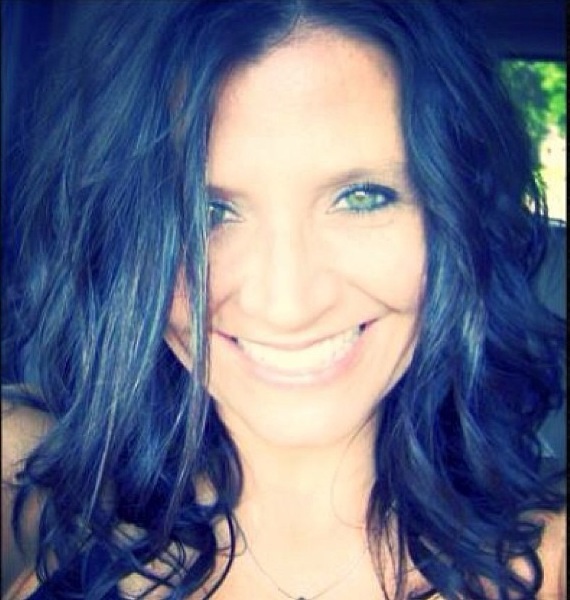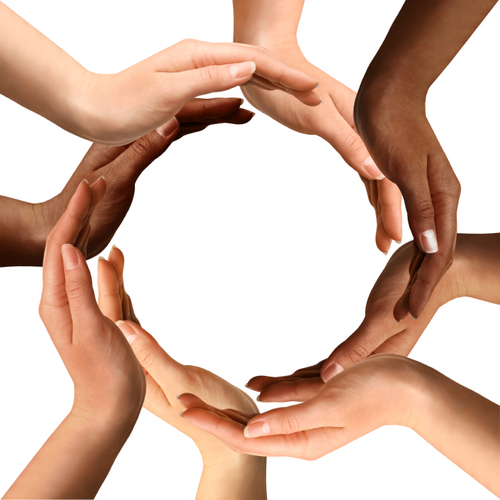I've been a broadcast meteorologist on television since the early 1990's. Happy to answer any questions about the weather or local TV news. Yes, I often wear sneakers on set just out of view of the camera.
It usually clicks in pretty quick but there is a mental hurdle to get past. You are exactly right. We stand in front of a blank wall, usually bright green, sometimes blue. The control room equipment digitally inserts the weather maps in the areas where the camera sees green (you have to be careful about the colors in your neckties) the process is called chroma key. On either side of the wall we look at a monitor that shows us the "mixed" version of the picture, and there is a teleprompter in front of the camera lens showing the same image. That is where the mental hurdle takes a little time because that image is reversed, like looking in a mirror. When giving studio tours I usually ask someone to stand in the middle of the country, looking forward, and ask them to point to Boston. They usually hesitate a moment and then the hand goes up to Seattle and we'll have a good laugh. Great question, thanks!
Yup. Sometimes people will say they recognize the voice first, I think because I'm not always in a suit. Other times you can tell that people are looking from across the room trying to figure it out and be sure. Can't speak for all of us but I always appreciate a connection. Yes, people will give me static about the weather, almost always in good fun. For those who give me trouble I say, "I'm in marketing, God is in manufacturing." that usually gets me off the hook with a smile. Thanks for asking, Steph!
You've asked a really hot question right now. Naming tropical storms began in the early 1950's. Tracking was initially done by latitude and longitude which proved confusing especially when there were multiple storms. This winter season The Weather Channel decided to name winter storms. Their claim is that it helps raise awareness. We had a representative from The Weather Channel on a podcast I co-host, called WeatherBrains, a few months ago. There are a couple of issues. The Weather Channel did not discuss their plan with any other organizations, like the National Weather Service, the American Meteorological Society or the National Weather Association. Since there is a certain amount of competition among media outlets, most have chosen not to adopt the winter storm names. There is also some question about the criteria that is used to give a storm a name as The Weather Channel has not fully shared its method leading to some scientific confusion. Also, there is a question of the historical record. Everyone will remember Sandy but Nemo is only partially recognized. Great question, personally I think there was some good intention on the part of The Weather Channel that was poorly executed as a marketing move.
Perfectly valid question. Local TV news is changing rapidly and will see negative growth for some years to come. One of the reasons is the increase in the amount of choices people have to find information. Different viewers/users have different wants and needs. Some prefer to simply find a partly cloudy icon and a high of 72 on their smartphone, others like having someone explain a bit of the science behind the forecast. There is a great book called The Long Tail that I highly recommend that talks about serving users in the digital age. On a practical community side, local weather folks speak to schools about science and civic groups about public safety and emcee events. Probably most important, during times of severe weather the local meteorologist, if doing his/her job properly, looks in the camera and hopefully brings a sense of importance or urgency that a simple text forecast might not. There is a great deal of social science research going on right now in this area and the results are surprising. Public reaction, and action, in a dangerous weather situation varies widely and most of us are hoping to look out for folks in our markets. Some people just like to take ownership of a "local celebrity". I had a woman call me one day and chew me out for having my hair too long! I guess I was glad she felt she could. Great question, thanks!
Certified Nurse Aide
 What's it like going into a room in the morning to find someone dead?
What's it like going into a room in the morning to find someone dead?
Hospice Nurse
 Ever heard any crazy deathbed confessions or family secrets revealed?
Ever heard any crazy deathbed confessions or family secrets revealed?
Social Worker
 What do you think that New York does better or worse than other States?
What do you think that New York does better or worse than other States?
Actually, there really are no minimum requirements. In general the more meteorological knowledge you have the better. Some stations won't hire without at least a degree, others will hire based on looks and presentation. In my opinion, if you have an interest in the science, go to the local TV stations and make friends then ask for an internship. You'll get on-camera and computer training. If there is a local chapter of the American Meteorological Society or the National Weather Association, those are good places to make contacts. Good luck, please keep me posted.
Ooooh, you've asked me to walk over hot coals to touch the third rail!! First let me make a distinction between Global Warming and Anthropogenic Global Warming. I think that most people agree that the global climate varies over time and probably goes through cycles. The "hot button" issue is whether or not manmade activities are causing a greater change, that is the "anthropogenic" part. The information that I have seen, and this is largely anecdotal, suggests that a majority of television meteorologists are not in anthropogenic camp. There is a difference between meteorology and climate. TV folks deal largely with the next seven days as opposed to longer periods of time, which is climate, and there has been some complaint that television folks are not properly qualified to comment, but there is concern since we generally have pretty big megaphones in our communities. Hope that answers the question without getting me in trouble!
Well...being a professional, of course, I've never had any bloopers. That said, there was one time when we were joking around during the commercial break before a cut-in. When the camera light came on the anchor tossed to me and just as he did, the corner of his mouth went up in a knowing smirk. I lost it and started laughing. Then kept on laughing. The cameraman and producer, standing behind the camera, buckled over and hit the floor, which didn't help at all. I couldn't do anything. Couldn't pitch back, couldn't do the weather, couldn't pitch to traffic. It went on for about 40 seconds, which in live TV is an eternity. I finally did the weather and my wife called afterward and said, "At first I was laughing along with you, but then I just started praying, "Oh, Lord, just help him get through it!" Great question, thanks!!
-OR-
 Login with Facebook
Login with Facebook (max 20 characters - letters, numbers, and underscores only. Note that your username is private, and you have the option to choose an alias when asking questions or hosting a Q&A.)
(A valid e-mail address is required. Your e-mail will not be shared with anyone.)
(min 5 characters)
By checking this box, you acknowledge that you have read and agree to Jobstr.com’s Terms and Privacy Policy.
-OR-
 Register with Facebook
Register with Facebook(Don't worry: you'll be able to choose an alias when asking questions or hosting a Q&A.)